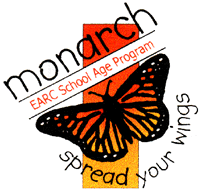
The Monarch School Program is dedicated to providing information and resources to families and school systems throughout Georgia for the education of K-12 students with autism / autistic spectrum disorder.
Educators have known for a long time that children with Autism Spectrum Disorder (ASD) can learn a lot by being in a classroom with typical children. Inclusion (educating students within the general education classroom) gives children with special needs the opportunity to learn in a natural environment and the opportunity to learn social skills from interacting with their classmates. In addition, Inclusion can eventually lead to greater acceptance of these children in the community.
Unfortunately, teachers are not always trained how to help children with special needs function in a typical classroom, nor in ways to ensure successful imitation of the positive role models.
“Teachers do not necessarily have the specific training required to teach these children yet, too often, the children with ASD are placed in the classroom with the expectation that the teacher, or the student, will learn to adapt,†says Sheila Wagner, M.Ed., assistant director of the Emory Autism Center. “Without the training, many times the student faces failure, when success was the goal.â€
In order to provide some guidance to the school system, the Emory Autism Center received a grant from the Childhood Autism Foundation (CADEF) in 1994 to develop a program that would address Inclusive Education for students with ASD. With the help of CADEF, the Monarch Program was created. The program implemented a nationally recognized Inclusion Project that has reached hundreds of students with ASD, thousands of teachers through on-site technical assistance and training, and assisted thousands of typical students in learning about the autism spectrum and children with different behaviors and abilities.
“The Monarch Program has grown to provide school systems with a network of support from curriculum training, to teacher and home/school collaboration, to consultations and social skills curriculum,†says Wagner, who serves as the Program Manager of the Monarch School-Age Program at Emory.
“Because of the Monarch Inclusion Project, students with ASD are increasingly able to enjoy exposure to typical students, and teachers are offered some guidance in providing a positive classroom experience.â€
Wagner began her experience in the field of autism more than 30 years ago and has published three books on inclusive programming for students with ASD, as well as a brochure on Asperger’s syndrome, and a chapter in Grandin & Attwood’s book Aspergers and Girls.
The Emory Autism Center is a component of the Department of Psychiatry and Behavioral Sciences at Emory University School of Medicine. The program was opened in 1991 as a public, private and University collaboration. Since opening, the Emory Autism Center has become a national model for diagnosis, family support and innovative treatment, as well as a vital source of professional training.




